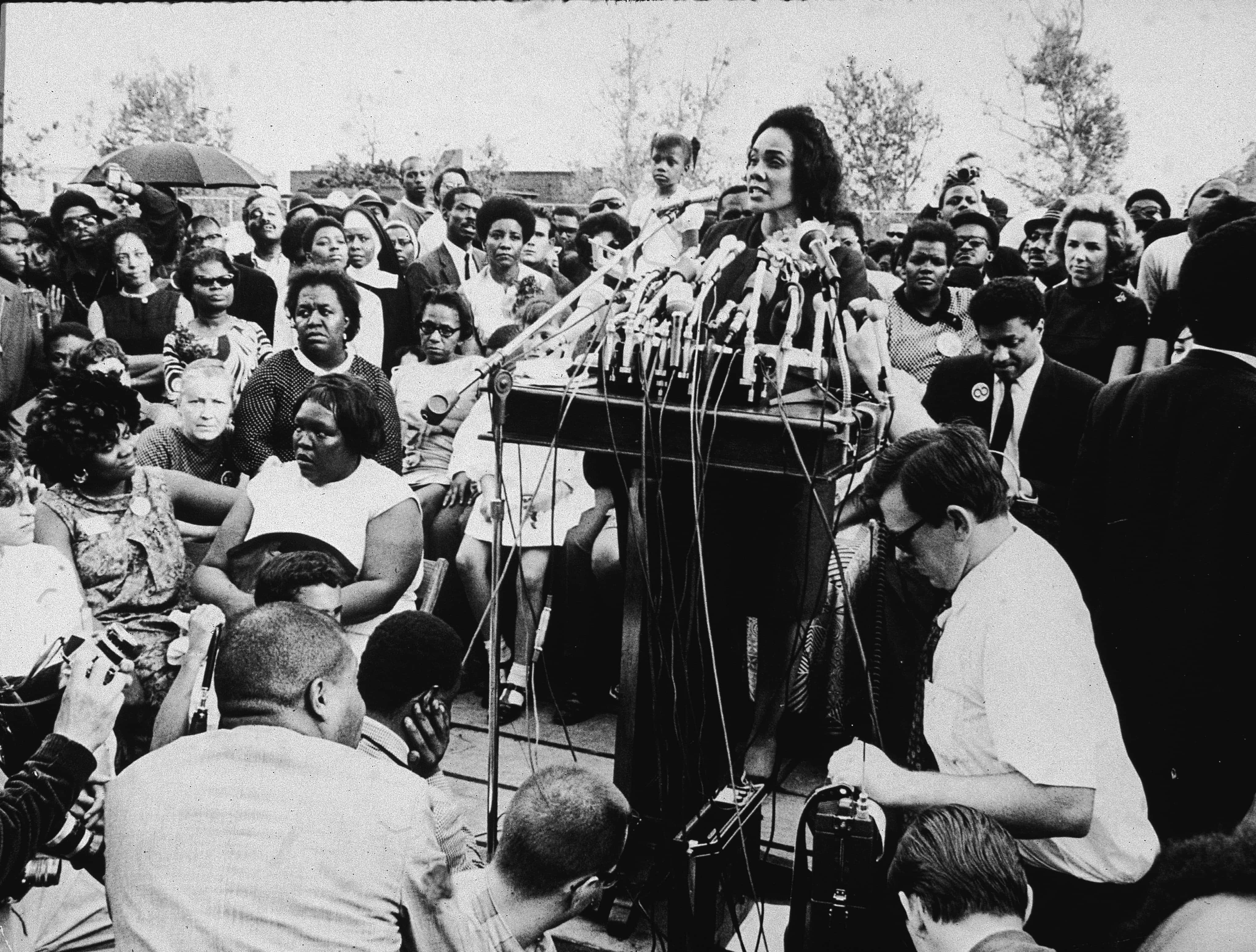Who is Coretta Scott King? A look at her legacy as Bernice King says 'please honor my mother as well' on MLK Day

On Monday, January 18, Bernice King, the youngest child of civil rights leader Martin Luther King Jr., wrote, “As you honor my father today, please honor my mother, as well.” It was Martin Luther King Jr. Day, the federal holiday marking the birthday of Martin Luther King Jr. It is observed on the third Monday of January each year.”
Bernice King further wrote, “She was the architect of the King Legacy and founder of @TheKingCenter, which she founded less than three months after Daddy died. Without #CorettaScottKing, there would be no #MLKDay. #MLK #BelovedCommunity.” The name of Coretta Scott King began trending on Twitter in its aftermath, with many sharing photos of both civil rights leaders.
As you honor my father today, please honor my mother, as well. She was the architect of the King Legacy and founder of @TheKingCenter, which she founded less than three months after Daddy died. Without #CorettaScottKing, there would be no #MLKDay. #MLK #BelovedCommunity pic.twitter.com/cLvgTjeUwE
— Be A King (@BerniceKing) January 18, 2021
Dr. Martin Luther King, Jr. & Coretta Scott King in Chicago, 1965-66.
— Vashon (@vashon_photo) January 18, 2021
Photographer: Bernard J. Kleina #MLK #MLKDay pic.twitter.com/zzHwC7Fxdb
Celebrating Martin Luther and Coretta Scott King Day by continuing to do the work I am here to do to create the world we all deserve. And remembering my ancestors as young, in love, and sacrificing so much in the service of a vision where all are truly free. It is achievable! 💜 pic.twitter.com/GOp0Xzarbr
— Eric Darnell Pritchard (@EricDarnell) January 18, 2021
It would be remiss and utterly ignorant to not also celebrate the legacy of Coretta Scott King.
— 🌳 (@_morgannnn) January 18, 2021
She was an accomplished musician, a leader in civil rights movement and the Architect of the King legacy.#MLKDay pic.twitter.com/indhmR3L0E
Coretta Scott King’s legacy
Very often we hear of Reverend King’s activism and critique of America’s racist, imperialist values. But in the rare moments that his wife is mentioned, Scott King is usually dismissed with epithets like “beautiful” and “kind” and “gentle”. In her lifetime, Scott King never appreciated them. As per a Guardian profile of the civil rights leader, Scott King often lamented how she was seen but not heard, admired but not considered as worthy a leader as her husband. “I am made to sound like an attachment to a vacuum cleaner,” she had said, “the wife of Martin, then the widow of Martin, all of which I was proud to be. But I was never just a wife, nor a widow. I was always more than a label.”
Born on April 27, 1927, in Marion, Alabama, Scott King became politically active during her time at college. According to biographer Clayborne Carson, Scott King “was more politically active at the time they met than Martin was.” The two met in Boston while Scott King was studying at the New England Conservatory of Music, and King was working on his doctorate at Boston University.
Scott King played a prominent role in the movement for civil rights in the years after her husband's assassination in 1968. She also became active in the Women's Movement. She founded the King Center and sought to make King's birthday a national holiday. But even before his death, Scott King was instrumental in helping King guide the movement.

In 1962, she was a delegate for the Women’s Strike for Peace to the 17-nation Disarmament Conference in Geneva, Switzerland. She also joined the Women’s International League for Peace and Freedom and became more vocal on U.S. imperialism as situations between the U.S. and Vietnam escalated in the early 1960s. In 1965, she addressed an antiwar rally at New York’s Madison Square Garden, the only woman to address the crowd.
In 1965, when a reporter asked King if he had educated his wife on issues of peace, civil rights, and equality, he replied: “She educated me.” As per her profile, the FBI continued to actively surveil Scott King for years after her husband’s death, fearing she “would tie the anti-Vietnam movement to the civil rights movement.”
In the 1980s, Scott King took an active role in the anti-apartheid movement, and in 1984 was arrested outside the South African embassy. Later, she also became a vocal advocate of gay rights and a supporter of same-sex marriage. In the 90s, she had said, “I appeal to everyone who believes in Martin Luther King Jr.’s dream to make room at the table of brotherhood and sisterhood for lesbian and gay people.”
“I am not a ceremonial symbol,” Scott King once said. “I am an activist. I didn’t just emerge after Martin died -- I was always there and involved.”










